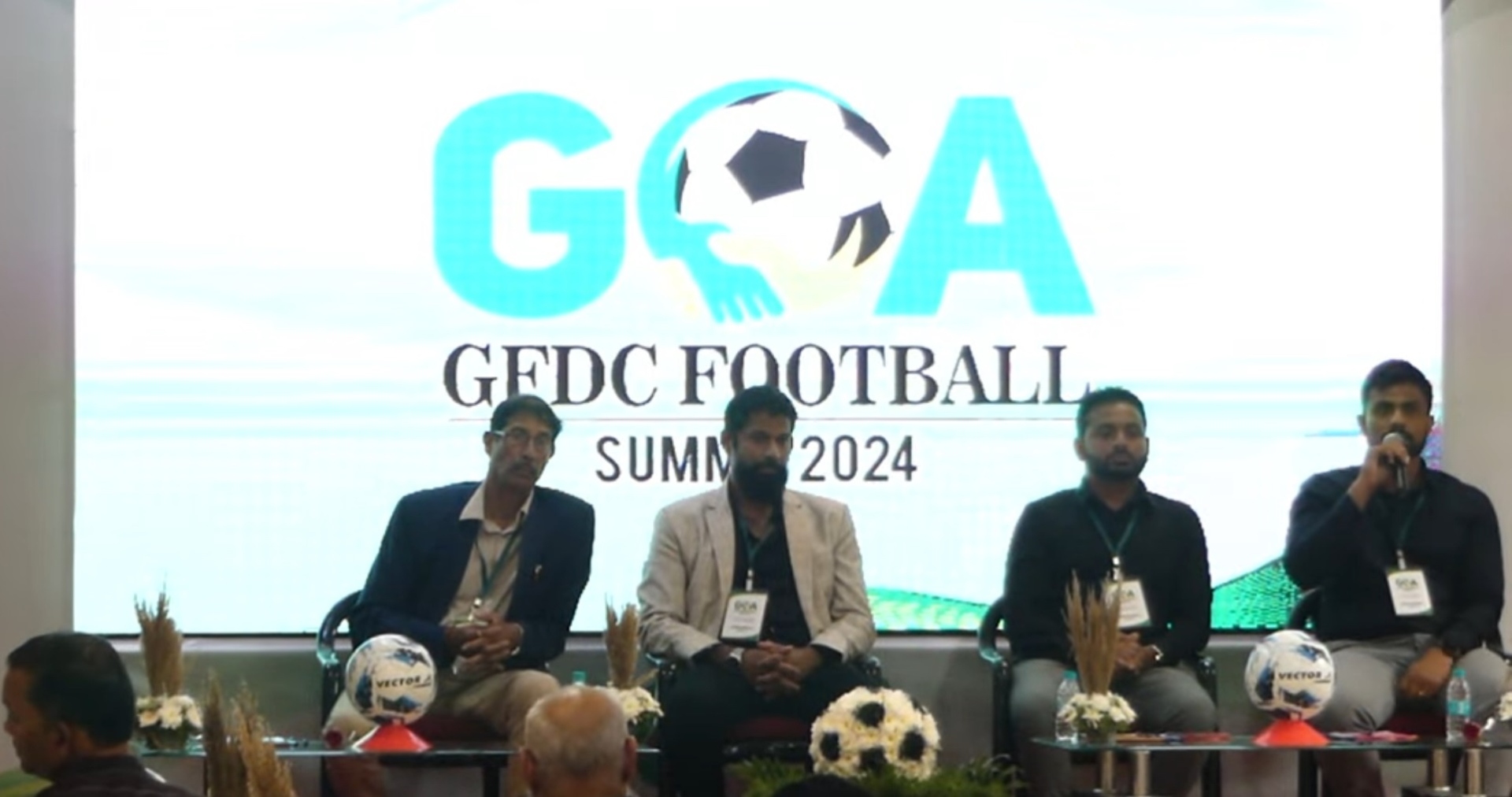
The panellists at GFDC Football Summit.
PANAJI
At the GFDC Football Summit, the challenges faced by players in the Goa Pro League were a central topic of discussion. Key issues discussed included financial instability, salary structures, and the alarming rise of match-fixing incidents.
Currently, top players in the Goa Pro League earn between Rs 30,000 to Rs 40,000 a month. Many are questioning whether this amount is sufficient for sustaining a living and motivating players to pursue football seriously. The conversation highlighted the need for deeper exploration into how these financial pressures might lead some players to consider match-fixing as an option.
Brahmanand Sankhwalkar, the former India captain, emphasized the importance of the Goa Pro League as a foundational platform for players. He stated, “The Goa Pro League is the base for players. It’s not just about Rs 20,000 or Rs 30,000. Without this base, I-League and ISL clubs won’t recognize the players properly. This league is crucial for showcasing talent.”
Sankkhalkar expressed concern over recent match-fixing incidents, urging for enhanced support systems. “There should be high-level counselling for key players. The GFA (Goa Football Association) must work hard to address this issue. Mentorship from retired players could help guide younger talent and prevent them from making poor choices,” he said.
Denzil Franco, a former national player, shared his perspective on financial challenges in his early career. “In my time, we often went unpaid for months, yet we stayed focused on our goals,” he remarked. “My passion for the game drove me. Money was never my priority; it followed my dedication and hard work.”
Franco highlighted that despite facing salary delays, his team achieved success, stating, “For us, it was about pride and earning for the club.”
Beevan D’Mello, another well-known player from Goa, acknowledged the realities of the current salary structures.
“While I wouldn’t blame the clubs entirely, the disparity between salaries and the cost of living has widened due to inflation,” he explained. D’Mello suggested that clubs need to communicate transparently with players about salary expectations and the financial landscape. “Players should be aware of their situation during contract negotiations, so they can make informed decisions about their future.”
D’Mello proposed that the government and GFA should implement measures to provide long-term security for players. “There should be job opportunities for players who have served the sport for over a decade. Creating a job quota for retired players could significantly boost motivation,” he said.
Keenan Almeida, Coach of Salgaocar FC, echoed these sentiments. He urged players to view the Goa Pro League as an investment in their futures. “Regardless of how much they are paid, players should use this platform to showcase their talent. If clubs commit to paying players on time, it would alleviate pressure and allow them to perform better,” he added.
Almeida also noted the practices in other States, mentioning, “In States like West Bengal and Kerala, players who represent the State in the Santosh Trophy receive government jobs after retirement. This provides a significant incentive for players to excel.”
Lector Mascarenhas, a former player, highlighted the importance of players understanding their rights, particularly regarding salary payments. “Players need to be educated about their rights. If they face delays in payment, they should not remain silent. Writing to the GFA about non-payment is essential,” he advised.
The consensus from the summit was clear; while the Goa Pro League offers a vital platform for aspiring players, better financial support, transparency, and security measures are crucial for ensuring players can focus on their game without the stress of financial instability. The discussions pointed towards a need for collaboration among all stakeholders in football to create a supportive environment where players can thrive both on and off the field.